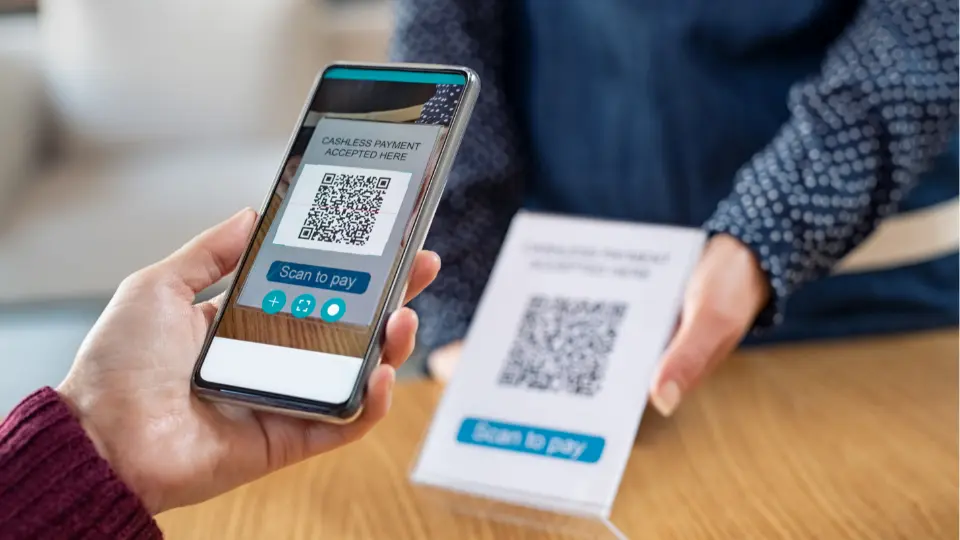

Customer Engagement: Explore 5 Metrics to Success
Customer engagement has become a critical success component in the fast-paced corporate environment of today. Building enduring relationships with your consumers has become the key to sustained success; it is no longer enough to just sell a product or provide a service.
In this blog, we’ll delve into the area of customer engagement and examine its importance, tactics, and technologies that can assist companies in developing deep relationships with their target market.
Understanding the subtleties of client involvement, whether you’re a seasoned business owner or just getting started, may make all the difference in fostering loyalty, boosting sales, and achieving long-term success. Let’s go out on a journey to understand the complexities of customer interaction and learn how it may transform your company.
Create a free survey and collect data from your customers
What is Customer Engagement?
Customer engagement is a process where a company or business engages with the customer beyond the transaction of sale and purchase of product or service. It is an intentional and consistent approach by the businesses which is aimed to build a relation with the customers that will result in an increased brand awareness, product adoption and overall loyalty.
The major focus of customer engagement is to create connected experiences for your customers by optimizing your team structure, operations and technology in the most effective manner possible. Customer engagement strategy involves creating a constant connected feedback loop with your customers in regards to your product or service or both.
Create a free survey and collect data from your customers
Strategies For An Effective Customer Engagement
There are so many types of businesses that are running throughout the globe and with each passing day somewhere or the other, a new business idea is budding.
Having similar strategies for all kinds of businesses will not be efficient. Hence there are different types of strategies for different business purposes. Below mentioned are a few customer engagement strategies that are common across all kinds and sizes of businesses.
In this section, we will be keeping our focus on the different strategies that we can build around customer engagement to make it more effective and useful for your business. Some of the most widely used strategies that you can use for an effective customer engagement are –
- Sell emotions to the customers rather than selling your products or services. Share your company’s story, your company’s vision, and the mission with which you have started it. The more customers feel attached to your business, the more likely it is that they will engage with your business and if happy with your product or service can turn into loyal customers as well!
- Though the technology and AI are budding but when it comes to customer engagement and interactions, these do not prove to be very effective. Rather than a robotic or technological interaction for your customers, have a team or customer support set up in a manner that creates a more personalized experience for the customers, every time a customer interacts with your product or service in any manner.
- One of the most effective strategies for effective customer engagement is to be patient and an active listener. This is so because the more you will know about your customer the better you will be able to respond to their needs and demands.
- Once a customer buys your business product or service, make sure to collect customer feedback surveys and try to cover every aspect of your product and service making sure that the survey is not very long for the customers to fill out as this will lead to a fall in survey completion rate.
- The time frame between one purchase and the other for your product or service by a customer can be long and in that time it becomes very important to engage with your customers. One of the best ways to do it is by being active on multiple social media channels where you can give an update to your customer about your product or service or business in general.
- On the same lines of engaging with your customers on social media, one can also conduct various events and workshops in which customers can participate with your business, indirectly if not directly.
- One of the many crucial aspects of customer engagement and interactions is by making the customers feel valuable and rewarding them for being loyal to your product or service by offering them various gift vouchers or discounts and many other things like them from time to time.
- All customers are equally important for the business, but businesses need to take care of customers that are likely to drift away from your product or service, and engaging and interacting with those customers is very important for multiple reasons which you can read further in customer churn.
Keep the communication open with your customer with a feedback survey NOW!
Importance Of Customer Engagement
We just saw the definition of customer engagement and tried to understand the meaning of it. In this section we will be focusing on the importance of customer engagement and look at how it can be beneficial for your business.
Increased Customer Loyalty
The businesses that are continuously engaged with the customers are more likely to retain customers, reducing the churn rate and increasing customer loyalty. This is so because the customers who feel heard and their issues referred to are more likely to remain loyal to your business and will keep engaging with your product or services.
Improved Customer Satisfaction
When more and more customers feel engaged with your business, they are more likely to be satisfied with their overall experience. This is because they are more likely to feel valued by your business and brand and can feel their needs being met. All this will result in an increased customer satisfaction and positive reviews for your products or services.
Better Customer Experience
When you engage with your customers, you are more likely to address their issues and listen to them creating a more personalised experience for your customers. This will improve their overall experience with your product, service or business as a whole resulting in better customer experience and a stronger relationship between you and your customers.
Higher Revenue
When customers are satisfied with your business, product or service, they are more likely to spend an extra penny to buy any additional product or try any new product or service offered by your business. This will result in an increased revenue generation and better profitability and expansion possibilities.
Increased Customer Lifetime Value (LTV)
With more customers getting engaged with your product or service and remaining loyal to your business for a longer period of time. They will more likely have an increased customer lifetime value as compared to the ones that are not engaged with the business.
Competitive Advantage
If your business is more engaged with your customers, you are likely to enjoy competitive advantages than those of your rivals. This is because the more engaged you are with your customers, the better you will know then and will have an upper hand in creating better products and experience for them.
Improved Brand Reputation
When customers are satisfied with your brand and product or service, they are more likely to promote and spread positive words about your business, which will result in an improved brand reputation for your business.
Better Customer Insights
Engaged customers are more likely to provide feedback and insights for your brand, product or service. This can help you in better understanding your customers’ needs and preferences, and will help you to make improvements in your products and services, accordingly.
Create a free customer satisfaction survey and engage customers
Metrics To Measure Customer Engagement
Customer engagement is highly subjective which makes it extremely tricky to measure. There are many debates and discussions that happen on measuring customer engagement but even after all of it, there are no set metrics to measure for a business.
However, measuring this is very important for businesses as we saw in the above section. Therefore, many businesses use different sets of metrics to measure customer engagement.
Let’s dive deeper and look at the different metrics that you can track in order to check your customer engagement.
High Product/Service Usage
The more customers use your product or service, the more they are engaging with your business which is a good sign for your business, product or service.
Daily Active Users (DAU)
Daily active users as the name suggests are the real time active users of your brand, product or service. The higher the number of DAU, the better it is for your business and vice versa.
Churn Rates
Churn rate is the rate at which customers are dropping from your business. A higher churn rate is a bad indication for your business and a lower churn rate is an indication that your business is retaining more and more customers which is a good sign.
Referral Rates
Referral rates are the rates at which customers are referring your brand, product or service to other potential customers. A higher referral rate is a good indication for your business as it tells you that more and more customers are referring your brand, product or service to other people.
Social Media Activity
With the constant improvement in technology, tracking the activity on social media is also a good way of tracking your customer engagement. A higher activity on social media is a good sign for your business and vice versa. On social media there is a large aspect of things that you can look out for in regards to your customers.
Conclusion
You by now have all the needed information on customer engagement to get started with it for your business, brand, products or services.
We looked and understood the meaning of customer engagement, its importance and how it can be beneficial for our business, the different metrics that you can use to track customer engagement for your business, brand, product or service and the different strategies that you can build around customer engagement.
By looking at all the above mentioned things, we can conclude that customer engagement by no doubt is a very crucial component for your business – customer relationship and customer loyalty. Engaged customers are more likely to be satisfied and stay loyal and valuable to your business, brand, product or service. It can provide you an upper hand in competitive advantage in the marketplace.
By focusing on building relationships and providing personalized experiences to your customers, you can effectively engage with your customers and enjoy the benefits of increased customer loyalty and revenue.
FAQs
What is online customer engagement?
Online customer engagement is a method in which you can engage with your customer but not necessarily in a physical presence. There are many ways to engage with your customers online.
What is the role of customer engagement?
The role of customer engagement is simply to build and manage a healthy and reliable relationship with the customers.
What is customer engagement?
Customer engagement is a process where a company or business engages with the customer beyond the transaction of sale and purchase of product or service. It is an intentional and consistent approach by the businesses which is aimed to build a relation with the customers that will result in an increased brand awareness, product adoption and overall loyalty.
The major focus of customer engagement is to create connected experiences for your customers by optimizing your team structure, operations and technology in the most effective manner possible. Customer engagement strategy involves creating a constant connected feedback loop with your customers in regards to your product or service or both.
Create a free survey and collect data from your customers







